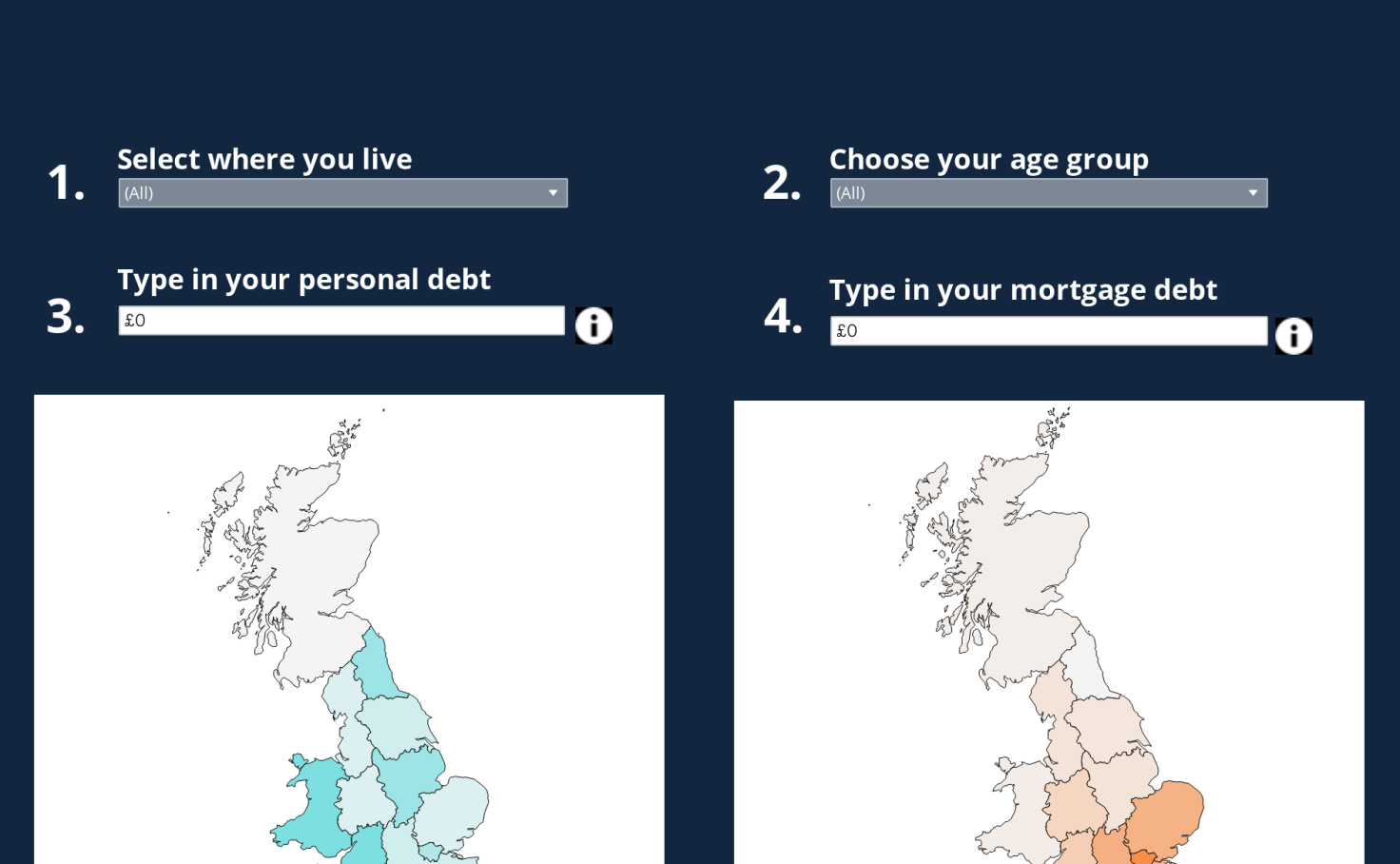Let's say you have borrowed money and need to pay it back. Your debt is, simply, the amount you owe.
It isn't always a bad thing to be in debt. Most people would struggle to pay upfront for big life-improving items (eg a house, a car or a degree) without borrowing money – and for the most part, they can and do pay it back.
But as we have seen in the past, such as during the financial crisis, it can be a very bad thing.
What are the different kinds of debt?
There are two main types: secured and unsecured.
A secured loan means you borrow against an asset, such as a house. For example, if you get a mortgage, your lender will own a percentage of the house until you have paid it off. The part you own is called equity, which goes up the more you pay back. If you can’t repay what you owe, they can repossess the house.
Unsecured debt, as you might have guessed, is not backed by any asset. This is much riskier for the lender because, if you can't pay, there is nothing to repossess and they lose money. Therefore, the interest on such loans tends to be much higher. In this case, 'interest' means a charge you must pay for borrowing at all – and lenders set it based on the risk of not getting paid back. Certain types of borrowing, such as overdrafts, revolving credit on your credit card and payday loans, also charge higher interest because they are a sign that you are having financial difficulties. This makes you look like a risky borrower.
Failing to pay debts, whether secured or unsecured, can affect your credit rating – a score, based on your financial history, that lenders use to see how likely you are to repay. Having a bad credit rating will make it more expensive and harder to borrow money. It can also affect your ability to rent a home, get a mobile phone contract or anything else that requires a credit check.
How does your debt compare to the rest of Britain?

What is the difference between fixed and variable interest?
If you take out a fixed loan, the interest will stay the same for a set period of time. Whereas a variable rate can change at any point, typically reflecting a change in the Bank of England's base rate (also known as Bank Rate). This is the rate of interest we pay to high street banks that hold money with us and, therefore, influences their own lending and savings rates. Raising or lowering it mainly affects people with variable mortgages.
Most unsecured loans have fixed interest rates. Credit card rates are high and tend not to move with base rate changes. But if you rely on unsecured borrowing and regularly need to refinance debt (borrowing more to pay back what you already owe), you might be affected by a base rate change.
Why does the Bank of England care about debt?
We try to control the pace at which prices rise, known as inflation, by setting Bank Rate – the key interest rate in the economy. If we reduce it, borrowing becomes cheaper and people tend to spend more, meaning the economy will grow. When we increase it, the opposite happens and the economy cools down. If people are in a lot of debt, and much of it is on a variable rate, their spending will change by more if the interest rate moves. So, we need to take this into account when making our decisions.
We also try to keep the financial system stable by making sure people’s debt doesn’t pose a risk to the wider economy. For example, we have created rules to limit the riskiest type of mortgage lending. And we test if the largest banks can cope with big losses from unsecured debt.
